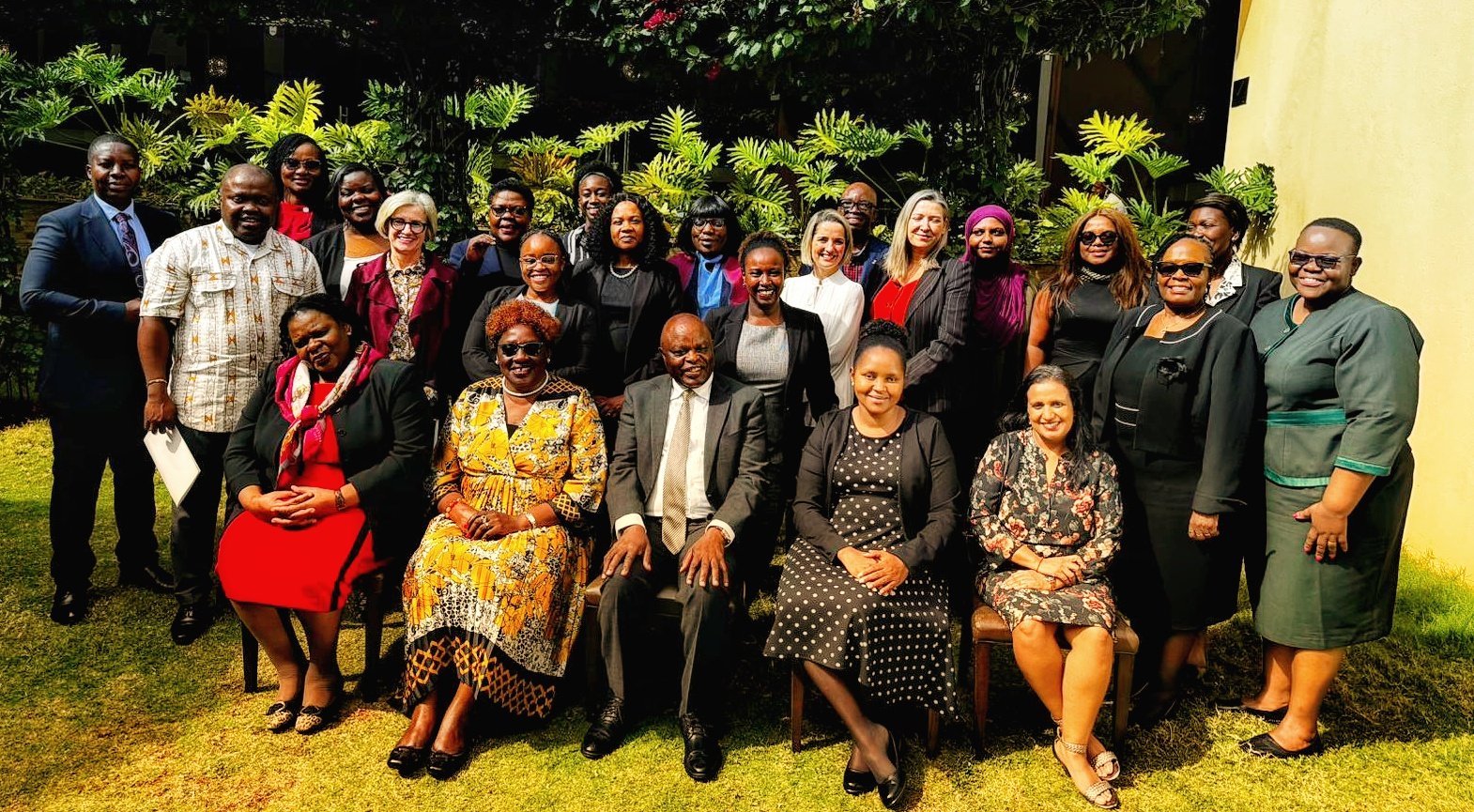On 2 and 3 July 2024, the International Commission of Jurists (ICJ) and the Centre for Human Rights (CHR), University of Pretoria, jointly held a colloquium on women’s and girls’ sexual and reproductive health and rights (SRHR) in the Protocol to the African Charter on Human and Peoples’ Rights on the Rights of Women in Africa (Maputo Protocol) in Nairobi, Kenya. The colloquium brought together judicial officers, legal practitioners, academics, legal experts and civil society actors. Through panel discussions analyzing various African domestic courts’ decisions on SRHR, participants explored how judicial officers can apply SRHR guaranteed in international human rights law and standards.
“This colloquium provided a valuable opportunity for African judges to engage with the tools and knowledge to enhance their ability to adopt a gender-sensitive approach to adjudicating cases, in a manner that ensures that African women’s and girls’ sexual and reproductive health rights,” said Kaajal Ramjathan-Keogh, Director of the ICJ Africa Programme.
The colloquium consisted of sessions on SRHR facilitated by legal experts, as well as panel discussions on the progress of African jurisprudence in the area of SRHR, featuring perspectives from both adjudicators and civil society organizations. Through these discussions, participants unpacked the importance of applying a gender-sensitive lens in judicial decision-making in order to advance women’s and girls’ SRHR, such as their rights to: access safe abortion services; sexual health care services; maternal health care services; family planning information; and protection from forced sterilization and harmful practices, including female genital mutilation and forced marriages.
Drawing on landmark judgments from courts in Botswana, Kenya, Malawi, South Africa, Uganda, Zambia and Zimbabwe, participants discussed the challenges and opportunities in applying international human rights instruments that enshrine the right to the highest attainable standard of sexual and reproductive health, especially the Maputo Protocol. Such challenges include: a lack of gender-sensitive judicial procedures and bias in judicial institutions; social stigma surrounding issues such as sexual orientation, gender identity, gender expression, and abortion; the existence of laws criminalizing conduct associated with HIV transmission; and intersecting forms of discrimination based on age, marital status, religion or disability.
The panels unpacked some of the detrimental human rights impacts of the unjustified over-criminalization of accessing sexual and reproductive health services. The ICJ’s Bangkok General Guidance for Judges on Applying a Gender Perspective in South and Southeast Asia and The 8 March Principles for a Human Rights-Based Approach to Criminal Law Proscribing Conduct Associated with Sex, Reproduction, Drug Use, HIV, Homelessness and Poverty were central to such discussions, providing guidance on the application of criminal law in a gender-sensitive manner that upholds the rights of women and girls to access sexual and reproductive health services.
“Though initially tailored for judges in South and Southeast Asia, the Bangkok General Guidance (BGG) offers valuable insights and principles that will be of use to judges worldwide, including in Africa,” noted Ramjathan-Keogh.
“By incorporating principles of international human rights law – as reiterated by the BGG and the 8 March Principles – and being responsive to intersectional discrimination in their rulings, African judges can significantly contribute to the advancement of SRHR and ensure they uphold women’s and girls’ rights to health, equality, dignity and privacy,” she added.
Judicial officers at the colloquium also highlighted the need for continual and extensive capacity-building, or similar colloquia, for magistrates, judges, and court administration officials, on the rights of women and girls to sexual and reproductive health, including marginalized groups of women such as older women, women with disabilities, migrant and refugee women.
Contact
Mulesa Lumina, Legal and Communications Associate Officer (Africa Regional Programme), e: mulesa.lumina@icj.org
Kaajal Ramjathan-Keogh, Director (Africa Regional Programme), e: kaajal.keogh@icj.org
Background
The 8 March Principles for a Human Rights-Based Approach to Criminal Law Proscribing Conduct Associated with Sex, Reproduction, Drug Use, HIV, Homelessness and Poverty, published by the ICJ in 2023, offer a clear, accessible, and operational legal framework and practical legal guidance for a variety of stakeholders, including judges and magistrates, on the application of criminal law to conduct associated with sexual and reproductive health and rights (Principle 14); abortion (Principle 15) consensual same-sex sexual relations (Principles 16); sexual orientation, gender identity and gender expression (Principle 18) and; the transmission of HIV (Principle 19).
Principle 14 provides that “[n]o one may be held criminally liable for exercising their rights to sexual and reproductive health, such as requesting, accessing or using sexual and reproductive health facilities, services and goods, including information.”
The ICJ’s 2022 Bangkok General Guidance for Judges on Applying a Gender Perspective in South and Southeast Asia sets out important considerations for the judiciary in applying a gender perspective in the administration of justice. For instance, the Guidance states that “[j]udges should be aware of the intersectionality of discrimination and exclusion based on any factors including but not limited to” disability, age, marital and family status, pregnancy, health status – including HIV status”, among other grounds. While initially tailored for judges in South and Southeast Asia, the substantive insights and principles articulated in the Guidance provide value that extends beyond these regions.
Further information
[WATCH] Dismantling Courtroom Misogyny





